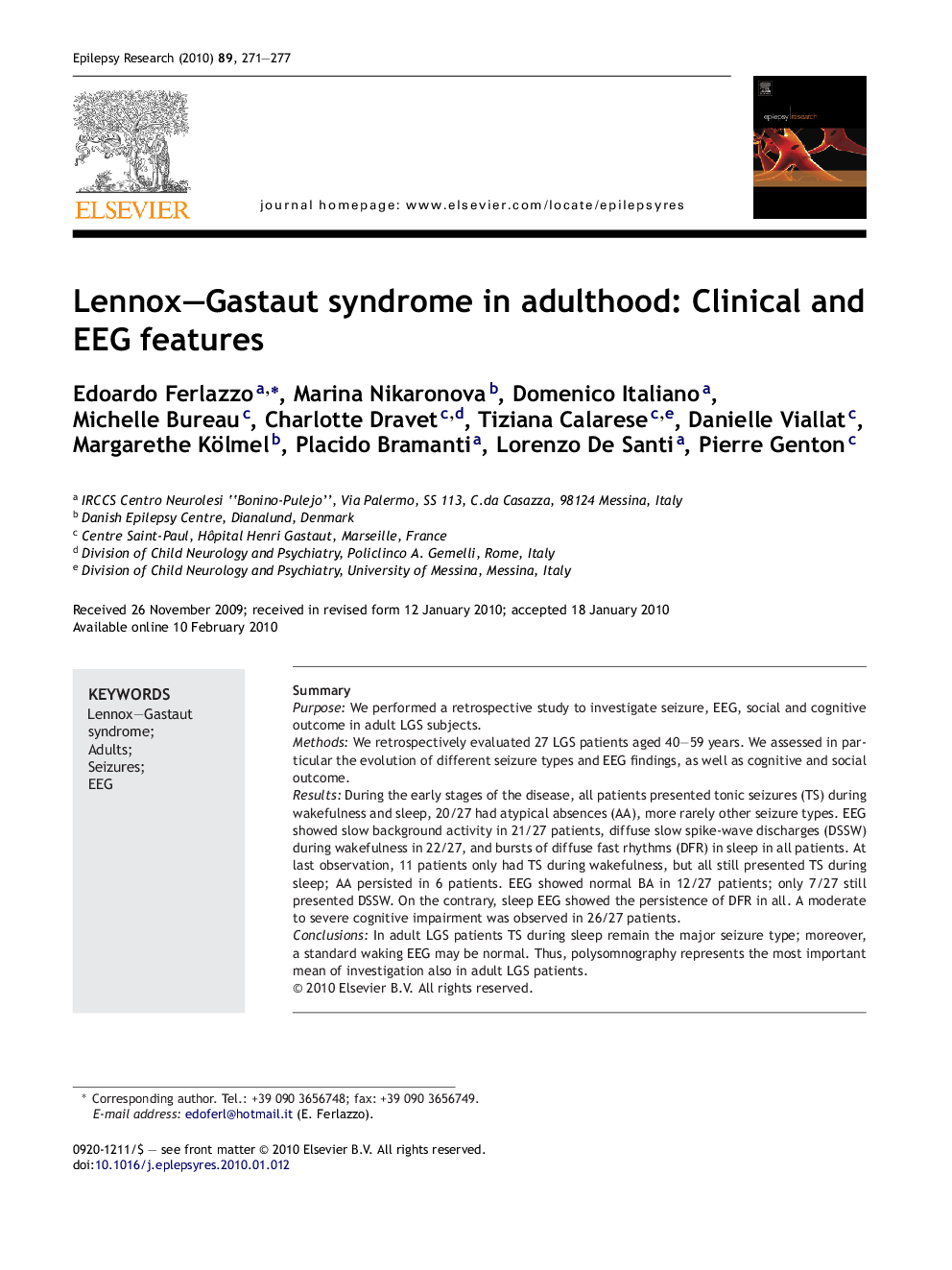| Article ID | Journal | Published Year | Pages | File Type |
|---|---|---|---|---|
| 3052632 | Epilepsy Research | 2010 | 7 Pages |
SummaryPurposeWe performed a retrospective study to investigate seizure, EEG, social and cognitive outcome in adult LGS subjects.MethodsWe retrospectively evaluated 27 LGS patients aged 40–59 years. We assessed in particular the evolution of different seizure types and EEG findings, as well as cognitive and social outcome.ResultsDuring the early stages of the disease, all patients presented tonic seizures (TS) during wakefulness and sleep, 20/27 had atypical absences (AA), more rarely other seizure types. EEG showed slow background activity in 21/27 patients, diffuse slow spike-wave discharges (DSSW) during wakefulness in 22/27, and bursts of diffuse fast rhythms (DFR) in sleep in all patients. At last observation, 11 patients only had TS during wakefulness, but all still presented TS during sleep; AA persisted in 6 patients. EEG showed normal BA in 12/27 patients; only 7/27 still presented DSSW. On the contrary, sleep EEG showed the persistence of DFR in all. A moderate to severe cognitive impairment was observed in 26/27 patients.ConclusionsIn adult LGS patients TS during sleep remain the major seizure type; moreover, a standard waking EEG may be normal. Thus, polysomnography represents the most important mean of investigation also in adult LGS patients.
